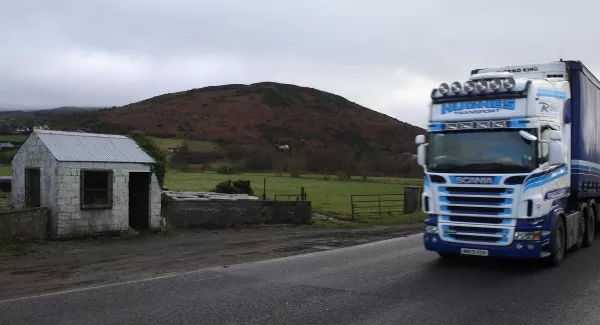The border between the Republic of Ireland and Northern Ireland is proving to be a stumbling block in Brexit talks.
However, reports have emerged suggesting the European Union is preparing to accept the need to use technology to avoid new border infrastructure.
- What is the current situation with the border?
There are almost 300 crossings between the North and the Republic of Ireland.
The 310-mile frontier was heavily militarised during the Troubles. The checkpoints are either gone or lying derelict as traffic passes freely across the border.

- What could happen to the border?
The UK and Brussels are opposed to creating a hard border on the island of Ireland, although they cannot agree on how this will be achieved.
How goods will move across the border post-Brexit and whether checks will be required remain issues given the UK's trading arrangement with the EU is unclear.
- What is the UK's preferred approach?
The British Government wants to leave the single market and customs union while also avoiding "friction" at the border.
Its Chequers plan outlines a free trade area for goods, which aims to allow businesses on both sides to continue operating through current supply chains and avoid the need for customs and regulatory checks at the border.
The EU and UK would have common rules on agriculture products to help movement at the border, among other ideas, according to the proposals.
- What have Brexit-backing, British politicians proposed?
The European Research Group of Brexiteer Tories believes the UK and Northern Ireland do not have to be tied to EU customs rules and argues that physical checks can be done away from the border.
They have proposed maintaining Northern Ireland and the Republic of Ireland as a common biosecurity zone to help certain goods move smoothly across the border. Other goods would be subject to existing simplified customs procedures, which do not require border checks.
So-called "trusted trader" schemes would be used by larger companies to clear goods for export and import, and other declarations would be incorporated into the existing system used for VAT returns.
Theresa May has argued the alternative to her Chequers plan is "still a hard border".
- Why has a "backstop" been proposed?
Such a position would act almost as a safety net to avoid a hard border. This would give Northern Ireland continued access to the single market, with EU rules applying in many circumstances.
The UK believes it should only be temporary even if a broader agreement fails to materialise, something the EU has rejected.






